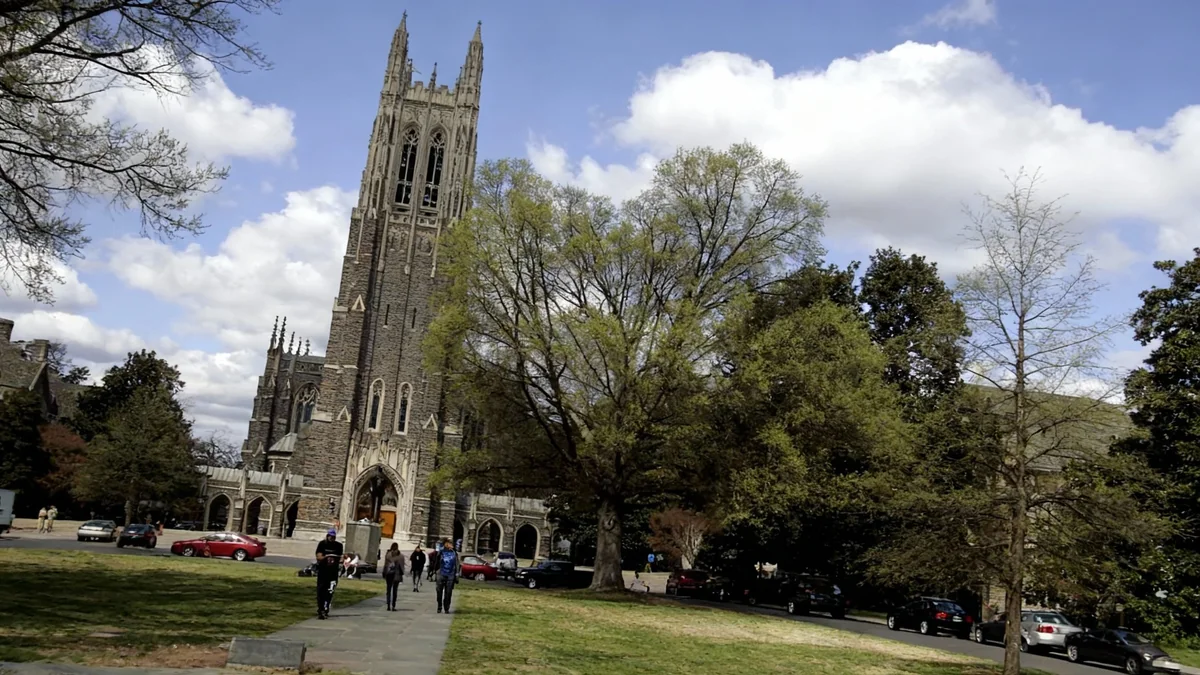Duke University has announced a significant change to its long-standing Baldwin Scholars program. Originally established in 2004 exclusively for female students, the program will now accept applications from all undergraduates, regardless of gender. This decision aligns with a broader national push to re-evaluate diversity, equity, and inclusion (DEI) initiatives within higher education.
Key Takeaways
- Duke University's Baldwin Scholars program now accepts all undergraduates.
- The program was previously exclusively for female students since 2004.
- This change reflects a national trend impacting DEI initiatives.
- The move aims to comply with federal guidance regarding gender-specific programs.
The Evolution of the Baldwin Scholars Program
The Baldwin Scholars program began with a clear mission: to support and empower female students at Duke. For nearly two decades, it provided unique opportunities for leadership development, mentorship, and academic enrichment tailored specifically for women.
The program has been a cornerstone for many female students. It offered a community and resources designed to help them thrive in a university environment and beyond. Many alumnae credit the program with shaping their careers and personal growth.
Program History
The Baldwin Scholars program launched in 2004. Its initial focus was on fostering leadership and academic excellence among female undergraduates at Duke University.
This recent expansion marks a notable shift in the program's direction. It broadens its reach to include all students, aligning with current interpretations of non-discrimination policies.
National Context for DEI Initiatives
Duke's decision does not occur in a vacuum. It reflects a wider national conversation about diversity, equity, and inclusion programs at universities. Across the country, institutions are reviewing their policies to ensure compliance with federal mandates and changing legal interpretations.
The current political climate, particularly under the Trump administration, has seen increased scrutiny of gender-specific or race-specific programs. This scrutiny has led many universities to adjust their offerings to avoid potential legal challenges or loss of federal funding.
"Universities are navigating a complex landscape where the intent of DEI initiatives is being weighed against legal interpretations of equal opportunity," an anonymous university administrator stated.
This pressure impacts various aspects of university life, from admissions to scholarships and specialized programs. The goal is to ensure that opportunities are accessible to all students, regardless of their background.
Policy Landscape
Federal agencies have intensified efforts to ensure university programs adhere to non-discrimination principles, leading to reviews of many DEI initiatives nationwide.
Impact on Campus and Student Life
The opening of the Baldwin Scholars program to all undergraduates will likely bring new dynamics to the campus. While some may view it as a loss of a women-specific resource, others see it as an opportunity for broader inclusion and diverse perspectives.
Students who previously did not qualify based on gender will now have access to the program's benefits. This includes its network, mentorship opportunities, and specialized workshops. The program's core mission of leadership development and academic enrichment remains unchanged.
University officials emphasize that the program will continue to foster a supportive environment. They aim to promote the growth of all participants. The focus will remain on developing well-rounded leaders.
Student and Faculty Reactions
- Some students express concern about the potential dilution of a program designed for women.
- Other students welcome the expanded access, believing it fosters greater inclusivity.
- Faculty members are discussing how to adapt curricula and activities to serve a more diverse cohort effectively.
Looking Ahead: The Future of University Programs
The change at Duke University serves as an example of how institutions are adapting to evolving legal and political environments. It highlights the ongoing balance between promoting diversity and ensuring equal access for all students.
Universities will likely continue to review their programs. They seek to find ways to support various student groups while adhering to federal guidelines. This could lead to further modifications in other specialized programs.
The long-term effects of these changes on student success and campus culture will be important to observe. The aim is to create environments where every student can thrive and contribute to the university community.
This evolving landscape underscores the need for clear communication and thoughtful implementation from university administrations. They must balance historical commitments with current legal requirements.





